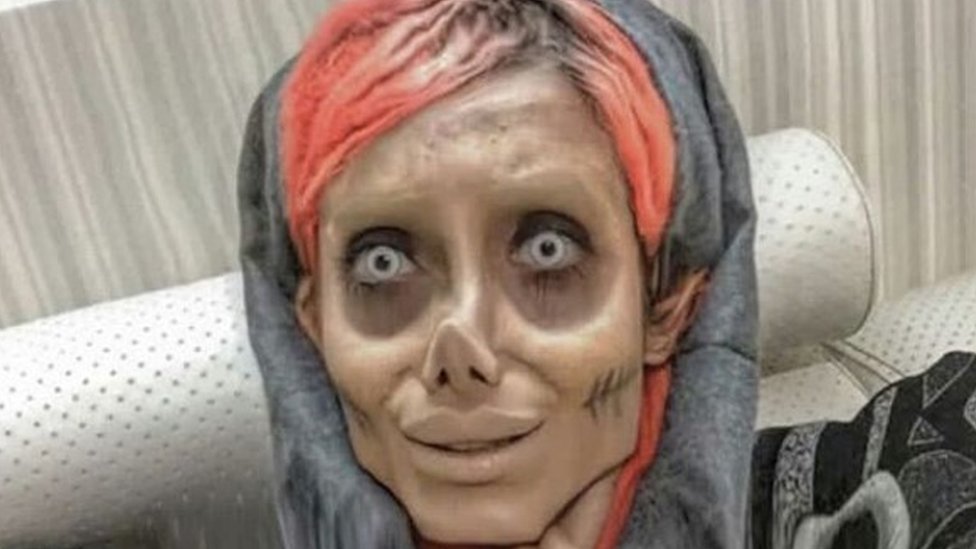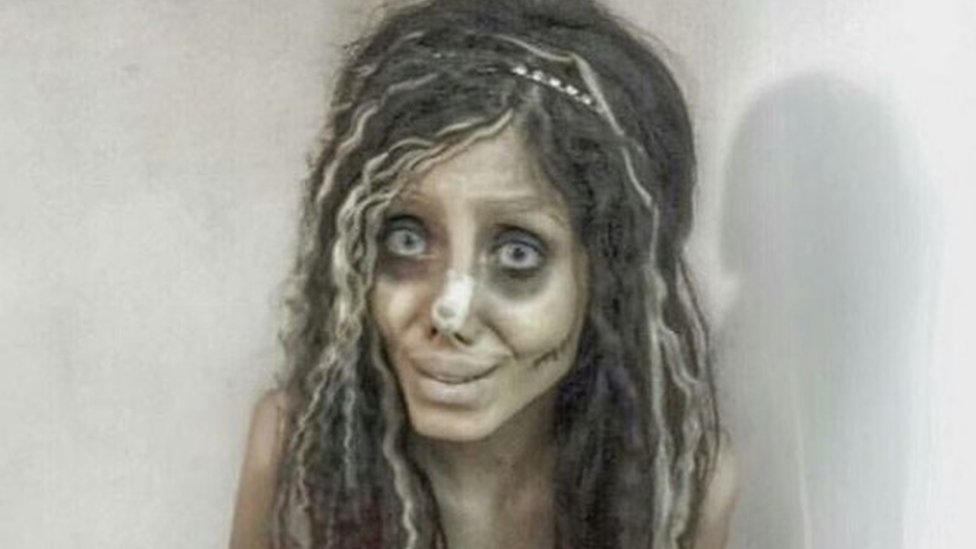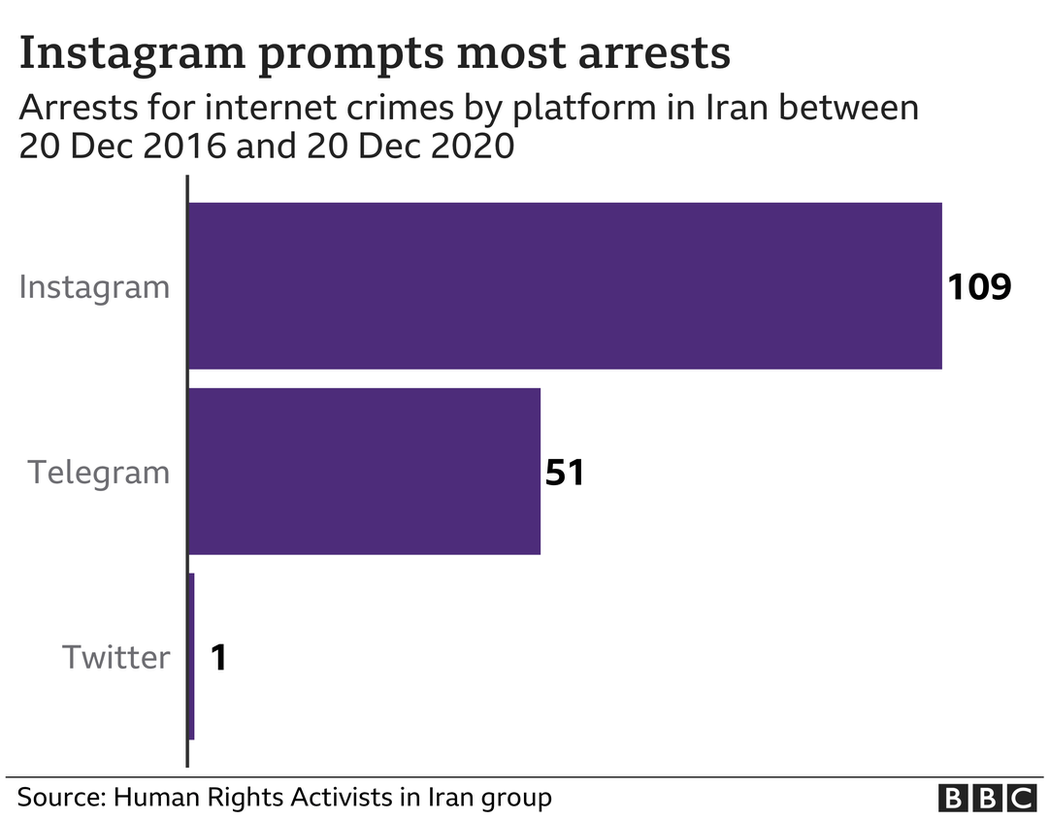The Instagrammers who worry Iran
Growing up in Iran, Fatemeh Khishvand dreamed of becoming famous, posting selfies on Instagram in the hope of getting noticed.
Typical enough - only Ms Khishvand's selfies were anything but.
They were heavily doctored photos in which her face appeared gaunt, distorted, and enhanced by make-up.
Posted under a pseudonym, Sahar Tabar, the photos were so striking they attracted international media attention when they first appeared in 2017.
In some, Ms Khishvand bore an uncanny resemblance to American actress Angelina Jolie. This led to false rumours that the teen had undergone 50 cosmetic surgeries to look like the Hollywood star but, as she would later clarify, the Corpse Bride character from Tim Burton's titular musical fantasy was her true inspiration.
Soon, her alter ego had almost 500,000 followers on Instagram, earning her the fame she had always desired.
But that fame came at a price.
In Iran, it can be dangerous to post on social media. The country's Shia Muslim authorities enforce strict laws about what can and cannot be posted. To them, Ms Khishvand's photos were seen as crimes, not the clever Photoshop trickery of a teenage girl.
So, in October 2019, Ms Khishvand was arrested on a raft of charges, including blasphemy, instigating violence, insulting the Islamic dress code and encouraging corruption among young people.
Her Instagram account was deleted and for more than a year she languished in jail, detained without bail. Eventually an Islamic Revolutionary Court - known for their secrecy and politically motivated rulings against dissidents - delivered a sentence of 10 years in prison in December last year.
The severity of the punishment was met with shock and condemnation.
"The Islamic Republic has a history of arresting women for dancing, for singing, for removing their compulsory veiling, for entering a stadium, for modelling, but come on - this time, for just using Photoshop," Masih Alinejad, a prominent Iranian journalist and activist, said in a Twitter video.
As Ms Alinejad's reaction suggested, Ms Khishvand's case is considered a new extreme in Iran's draconian treatment of social media users.
Precise data on internet crimes in Iran is hard to come by. But, according to research by the US-based Human Rights Activists in Iran group, at least 332 people have been arrested for their internet activities since 20 December 2016. Of those, 109 were for activities on Instagram, the group said.
As the only major social media network not blocked by the government, Instagram is a popular platform for young Iranians to express themselves.
This has created a dilemma for the government, which experts say is loath to block the tool for fear of provoking unrest, hampering business owners who rely on it for advertising, and severing a useful means of communication with its citizens. Instead, the government has attempted to act as a moderator.





No comments:
Post a Comment